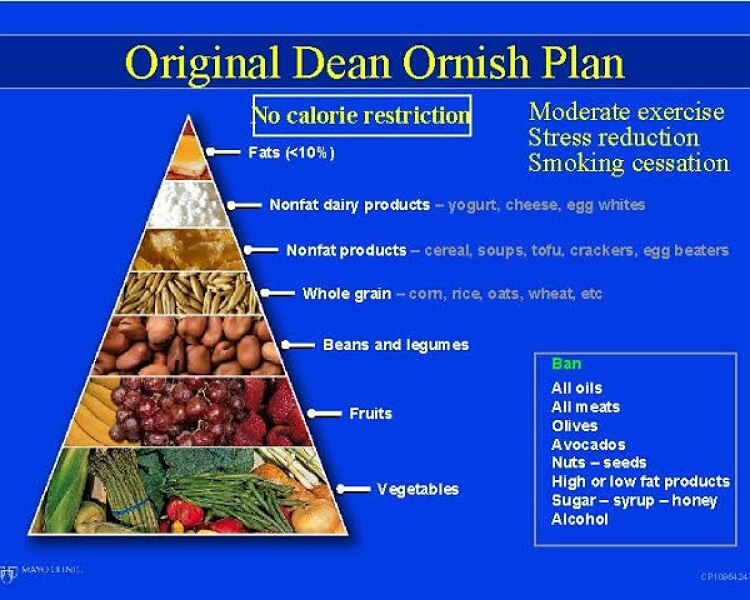The Ornish diet is a diet for reversal of chronic diseases and for overall health improvement. It is safe and excellent for the cardiovascular system. But it is a difficult diet to adhere to due to the severe fat restrictions in it.
The Ornish diet
The Ornish diet is a nutritious diet that promises reversal of chronic diseases and boosting of health. It involves severe fat restrictions. Dr. Dean Ornish who is a clinical professor of medicine at the University of California in San Francisco, created this diet in 1977. He is also the founder of the nonprofit organization, Preventive Medicine Institute in Sausalito. Dean claims that this low fat diet can improve overall health and also can treat and prevent the chronic diseases that come with age.

Sarah Schlichter, a dietitian based in Frederick, Maryland states that in this diet, one can consume a large variety of plant-origin foods, like colorful fruits, vegetables, whole grains and also legumes and beans. But it prohibits meat, fish, and poultry. But it allows eggs and milk. Thus it is lacto-ovo-vegetarian diet.
The food pyramid and pros of this diet
In this diet, there are five categories of foods. Group one at the base is most healthy while at the peak is group five, the least healthy. There are four main parts of the Ornish Lifestyle Medicine by Sharecare program pillars. And Ornish diet is one of them. The remaining are fitness, stress reduction, love and social support.
The benefits of this diet are that it is family friendly and eco friendly. It is affordable and relatively cheap. In this diet, fats are limited and one has to refrain from consuming refined carbs that have a high glycemic index.

Fats should provide only 10% of daily recommended calories intake. And these fats should be of the healthy type such as nuts, seeds, flaxseed oil, and omega 3 fatty acids from planktons.
Calories is usually in normal quantities unless you also want to shed some body fats and weight. Processed foods and sugars are to be less in consumption. Use low-fat dairy products. It emphasizes stress reducing measures, 15 minutes exercise per day and lots of social support. The health benefits have scientific backing.
Cons and safety of diet
One has to plan meals in advance and cannot have ready or processed meals. The taste of food might not be as good as normal due to less fats and sugars. There are lots of rules to adhere to and tendency to have monotony in eating. It might not be safe for some people such as pregnant or lactating mothers or malnourished people. Some may get nutritional deficiencies due to it. But generally it is safe.

Read here: What is Dr. Weil’s anti-inflammatory diet? Benefits and risks!
Dietitian Lauren Panoff from Denver opines:
“I would suggest looking at the long-term cost savings on health care by eating a healthful diet like this versus what may be a slightly higher cost of food compared to a standard Western diet.”
